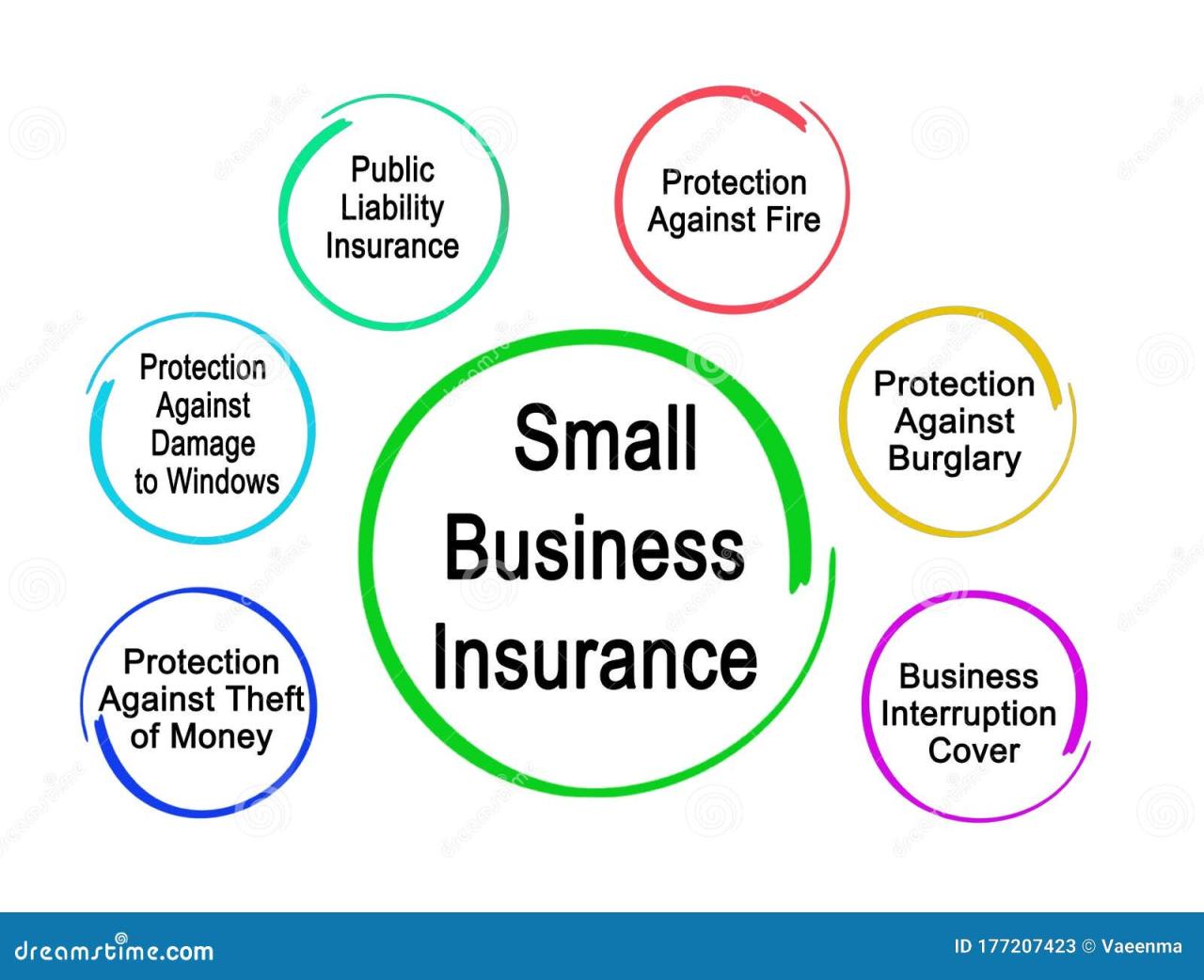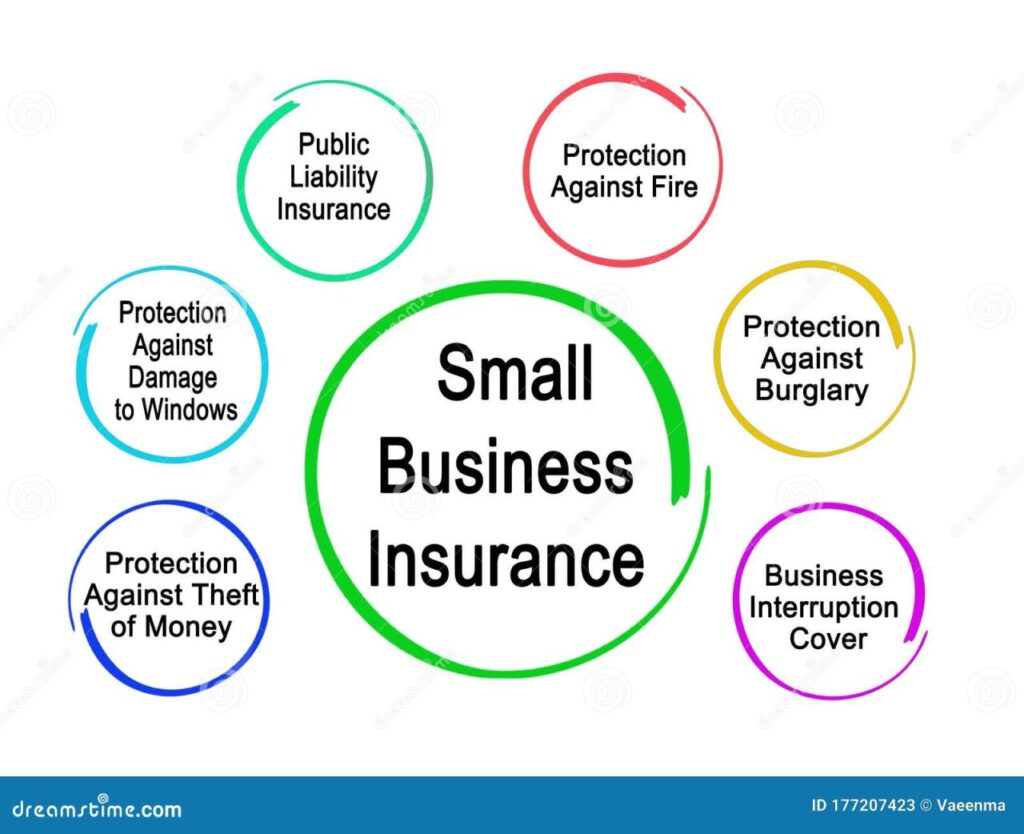Business insurance for LLCs is crucial for safeguarding your hard-earned assets and ensuring financial stability. While LLCs offer liability protection, unexpected events can still arise, potentially leading to significant financial losses. By investing in the right insurance policies, you can mitigate these risks and safeguard your business from unforeseen circumstances.
This guide explores the essential types of business insurance for LLCs, highlighting the coverage they provide and the specific needs of different industries. We’ll delve into the benefits of general liability, professional liability, workers’ compensation, and commercial property insurance, among others. We’ll also discuss factors influencing insurance costs and provide tips for choosing the right provider.
What is an LLC?: Business Insurance For Llc
An LLC, or Limited Liability Company, is a popular business structure that combines the benefits of sole proprietorships and corporations. It allows business owners to enjoy limited liability protection while maintaining operational flexibility.
Legal Structure of an LLC
An LLC is a legal entity separate from its owners, known as members. This means that the LLC itself is responsible for its debts and obligations, and the personal assets of its members are protected from business liabilities. The LLC’s structure is governed by an operating agreement, which Artikels the rights and responsibilities of its members, management structure, and profit and loss sharing arrangements.
Liability Protection Offered by an LLC
The most significant advantage of an LLC is its limited liability protection. This means that the personal assets of the members are shielded from business debts and lawsuits. If the LLC faces financial difficulties or a lawsuit, creditors can only pursue the assets of the LLC, not the personal assets of its members. This protection is crucial for entrepreneurs, as it reduces the risk of personal financial ruin due to business setbacks.
Advantages and Disadvantages of Forming an LLC
- Limited Liability Protection: As discussed earlier, LLCs offer significant protection for members’ personal assets, shielding them from business liabilities.
- Pass-Through Taxation: LLCs are typically taxed as pass-through entities, meaning that business income and expenses are passed through to the members’ personal income taxes. This avoids double taxation, as corporations face.
- Flexibility and Control: LLCs offer a high degree of flexibility in terms of management structure and ownership. Members can choose to manage the LLC themselves or appoint a manager. They also have the freedom to structure their ownership and profit-sharing arrangements as they see fit.
- Easier Formation and Maintenance: Compared to corporations, forming and maintaining an LLC is generally simpler and less expensive. The requirements for registration and ongoing compliance are typically less stringent.
- Limited Life: An LLC’s existence is tied to the life of its members. If a member leaves or dies, the LLC may need to be dissolved or restructured.
- Potential for Complexities: While LLCs offer flexibility, they can also become complex, especially with multiple members or complex ownership structures. This can lead to disagreements and legal disputes.
- Limited Access to Capital: LLCs may face challenges in raising capital compared to corporations. Investors may be hesitant to invest in an LLC due to its pass-through taxation structure and potential for limited liability.
Why is Business Insurance Essential for LLCs?
While forming an LLC offers some protection from personal liability, it’s not a foolproof shield. Unexpected events can still threaten your business’s financial stability and even your personal assets. Business insurance serves as a vital safety net, safeguarding your LLC from various risks and potential financial disasters.
Financial Risks Faced by LLCs
- Property Damage: Fires, floods, vandalism, and natural disasters can inflict significant damage on your business property, disrupting operations and leading to substantial repair costs.
- Liability Claims: Customer injuries, product defects, or negligence can result in lawsuits, leading to hefty legal fees, settlements, and potential judgments.
- Employee-Related Issues: Workplace accidents, discrimination lawsuits, and wrongful termination claims can create significant financial burdens for your LLC.
- Data Breaches: Cyberattacks and data breaches can expose sensitive customer information, leading to costly legal battles, reputational damage, and potential fines.
Potential Financial Consequences
- Business Interruption: A major event like a fire or natural disaster can force your business to shut down temporarily, leading to lost revenue, employee wages, and potential contract breaches.
- Legal Expenses: Defending against lawsuits or regulatory investigations can drain your resources, even if you are ultimately found not liable.
- Financial Ruin: Uninsured or underinsured risks can result in substantial financial losses, potentially bankrupting your LLC and impacting your personal assets.
How Business Insurance Mitigates Risks
Business insurance policies are designed to cover specific risks and provide financial protection in case of unforeseen events.
- Property Insurance: Protects your business property against damage from fire, theft, vandalism, and natural disasters.
- Liability Insurance: Covers legal expenses and settlements arising from third-party claims related to bodily injury, property damage, or negligence.
- Workers’ Compensation Insurance: Provides medical benefits and lost wages to employees injured on the job.
- Cyber Liability Insurance: Protects against financial losses and legal expenses stemming from data breaches, cyberattacks, and privacy violations.
General Liability Insurance
General liability insurance is a crucial type of coverage for LLCs, offering protection against financial losses arising from third-party claims of bodily injury, property damage, or personal and advertising injury. This insurance helps safeguard your business from potentially devastating lawsuits and financial burdens.
Examples of Situations Covered by General Liability Insurance
General liability insurance provides protection in various scenarios, including:
- A customer slips and falls on your property, sustaining injuries.
- Your employee accidentally damages a client’s property during a service call.
- A customer alleges that your product caused them harm.
- You mistakenly use a competitor’s trademark in your advertising.
- A customer claims that your business’s advertising is defamatory.
Importance of Adequate Coverage Limits
The coverage limits of your general liability insurance policy determine the maximum amount your insurer will pay for each claim and in total for all claims during the policy period. Choosing adequate coverage limits is crucial, as insufficient limits could leave you responsible for significant out-of-pocket expenses if a claim exceeds your policy’s coverage.
For example, if your policy has a per-occurrence limit of $1 million, your insurer will pay a maximum of $1 million for any single incident, regardless of the number of claimants involved.
It is essential to consider factors such as the nature of your business, potential risks, and the value of your assets when determining appropriate coverage limits. Consulting with an insurance broker can help you assess your specific needs and choose the right coverage for your LLC.
Commercial Property Insurance
Commercial property insurance protects your LLC’s physical assets from damage or loss due to various perils. It safeguards your business by providing financial compensation to cover repair or replacement costs, helping you to recover from unexpected events and continue operations.
Types of Property Covered
Commercial property insurance policies typically cover a wide range of property types, including:
- Buildings: This includes the structure itself, along with attached fixtures and permanent improvements.
- Contents: This encompasses furniture, equipment, inventory, supplies, and other movable property within the building.
- Business Personal Property: This covers items used in your business operations but not permanently attached to the building, such as computers, office equipment, and vehicles.
- Outdoor Property: This may include fences, landscaping, signage, and other structures located on the property.
Situations Covered by Commercial Property Insurance
Commercial property insurance policies often cover a variety of situations that can lead to property damage or loss, such as:
- Fire: This includes damage caused by fire, smoke, and water used to extinguish the fire.
- Windstorm: This covers damage caused by strong winds, including hurricanes and tornadoes.
- Hail: This protects against damage caused by falling hailstones.
- Vandalism: This covers damage caused by intentional acts of destruction or malicious mischief.
- Theft: This protects against loss due to burglary, robbery, or other forms of theft.
- Natural Disasters: This may include coverage for damage caused by earthquakes, floods, and other natural disasters, depending on the specific policy and location.
Choosing the Right Insurance Provider

Selecting the right insurance provider is crucial for safeguarding your LLC from financial risks. You need a provider that offers comprehensive coverage, competitive rates, and exceptional customer service.
Evaluating Insurance Providers
It’s essential to meticulously evaluate potential insurance providers to ensure they meet your specific needs and offer the best value. Here’s a checklist to help you:
- Financial Stability: Assess the provider’s financial strength, including their claims-paying ability and credit ratings. This ensures they can fulfill their obligations in the event of a claim.
- Coverage Options: Determine if the provider offers the specific types of coverage your LLC requires, including general liability, commercial property, workers’ compensation, and professional liability insurance. Consider the policy limits and deductibles offered.
- Customer Service: Evaluate the provider’s responsiveness, communication, and claim processing efficiency. Look for providers with a proven track record of excellent customer service.
- Reputation: Research the provider’s reputation within the industry. Check online reviews and ratings to gauge customer satisfaction.
- Pricing and Discounts: Compare quotes from multiple providers and consider any discounts they offer, such as those for safety programs, bundling policies, or membership affiliations.
Comparing Quotes and Coverage
Comparing quotes and coverage from multiple insurance providers is essential to find the best value. Consider the following:
- Policy Limits: Compare the maximum amounts the insurance provider will pay for covered losses. Higher limits offer greater protection.
- Deductibles: Understand the amount you’ll pay out-of-pocket before the insurance kicks in. Higher deductibles often lead to lower premiums, but you’ll have to cover more in case of a claim.
- Exclusions: Carefully review the policy’s exclusions, which specify what’s not covered. This helps you avoid surprises during a claim.
- Coverage Types: Compare the types of coverage offered by each provider. Ensure they meet your specific needs and industry requirements.
Building a Strong Relationship, Business insurance for llc
A strong relationship with your insurance provider can make a significant difference in your overall experience. Here are some tips:
- Clear Communication: Maintain open and transparent communication with your provider. Be clear about your needs and expectations, and promptly report any changes to your business or insurance needs.
- Prompt Payment: Pay your premiums on time to maintain a good payment history. This can help you qualify for discounts and avoid potential penalties.
- Regular Reviews: Review your insurance policy annually to ensure it still meets your needs and to explore any potential cost savings.
Final Wrap-Up

In conclusion, securing the appropriate business insurance for your LLC is a proactive step toward safeguarding your financial well-being. By understanding the various types of insurance available and carefully considering your specific business needs, you can create a comprehensive protection plan that minimizes risks and ensures the long-term sustainability of your venture. Remember to regularly review your insurance coverage and adapt it as your business evolves to maintain adequate protection.

